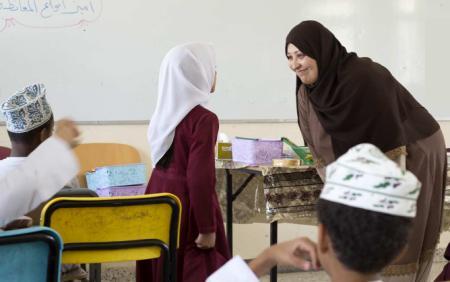
Education reform should be well-evidenced, thoughtful: Cambridge Partnership for Education
(MENAFN- Gulf Conferences)
LONDON: Cambridge Partnership for Education, a part of the University of Cambridge, Thursday, said that the disruption caused by Covid-19 has intensified debate on the nature of teaching, learning and assessment creating 'sizeable' gaps between many existing economies and governments' national visions.
“More than 1.3 billion people around the world are either overqualified or under qualified for their jobs – costing an estimated $8 trillion in unrealised GDP,” the Partnership quoted a BCG 2020 report.
Education transformation, it said, will be essential to close this gap and fuel further progress.
The Partnership is participating in an online three-day event, Middle East Education Thought Leadership Forum, conducted by a London-based educational networking company, Gulf Conferences on 25-27 October, 2021.
Dr Hanan Khalifa, Director of Education Transformation & Impact, Cambridge Partnership for Education, Cambridge University Press & Assessment, said that education reform should always be 'well-evidenced' and 'thoughtful'.
“Education underpins our economies and our societies. It is the key to a more sustainable and resilient future for all – in the Middle East and beyond,” Dr Khalifa said.
Seconding the thoughts of Dr Khalifa, Tim Oates CBE, Group Director, Assessment Research and Development, Cambridge University Press & Assessment, responded to the Partnership's findings that there was little time to consult research to inform change as the world pivoted quickly to remote schooling.
“Evidence is critical to implementing solutions that deliver long-term national and individual ambitions,” Oates said.“We encourage all policy makers considering the future of education and assessment to engage with international evidence and research, especially as they plan potentially drastic developments to recover and progress following this global crisis.”
To ensure current discussions are rooted in international evidence, Cambridge reviewed high performing education systems around the world in respect of assessment at age 16 – repeating their survey of 2015—and completed additional work on the 'ecosystem of assessment 16-25'.
“What we found, and what we conclude, will be of interest to all policy makers and commentators who are considering the 'Future of Assessment',” Oates said.
Cambridge Partnership for Education works with governments, ministries of education and international development organisations to improve the quality of education systems.
From systems analysis and policy recommendations to curriculum to teacher training, the Partnership works on education from almost every angle.Theyseek to“co-design evidence-based solutions with partners that effect sustainable change, supporting more than 20 million learners around the world to reach their goals and find their place in a modern, inclusive society.”
A spokesperson for the Partnership commented“events like the Middle East Education Thought Leadership Forum provide an opportunity to reflect on recent experience, evidence and research to help design and implement the education transformations governments and people need to move forward.”
Middle-East Education Thought Leadership Forum will be the first and largest virtual education event with an entirely Middle East region focus.
A global B2B and B2G business meeting and conference, the event is designed to bring education, government, corporate sector, technology providers and buyers together to exchange and explore digital technology solutions, products and services from across the Globe in one Forum over 3-days.
The event will be hosted on the Virtual Fair Platform under the patronage of the Secretary General of the Association of Arab Universities. Ministers of Education of the Arab League and with an expected number of delegates from 400 universities are expected to participate in the event.
The forum will be led by Ministers of Education and quality assurance leaders to help address policies related to online education. The event will help companies reach out to large markets in the Middle East and we will be proposing financial models which will include referral fees, alongside the sponsorship. Middle Eastern students will be invited freely to benefit from virtual learning.
Gulf Conferences
Legal Disclaimer:
MENAFN provides the
information “as is” without warranty of any kind. We do not accept
any responsibility or liability for the accuracy, content, images,
videos, licenses, completeness, legality, or reliability of the information
contained in this article. If you have any complaints or copyright
issues related to this article, kindly contact the provider above.


















Comments
No comment